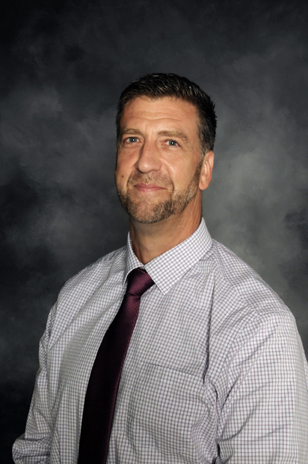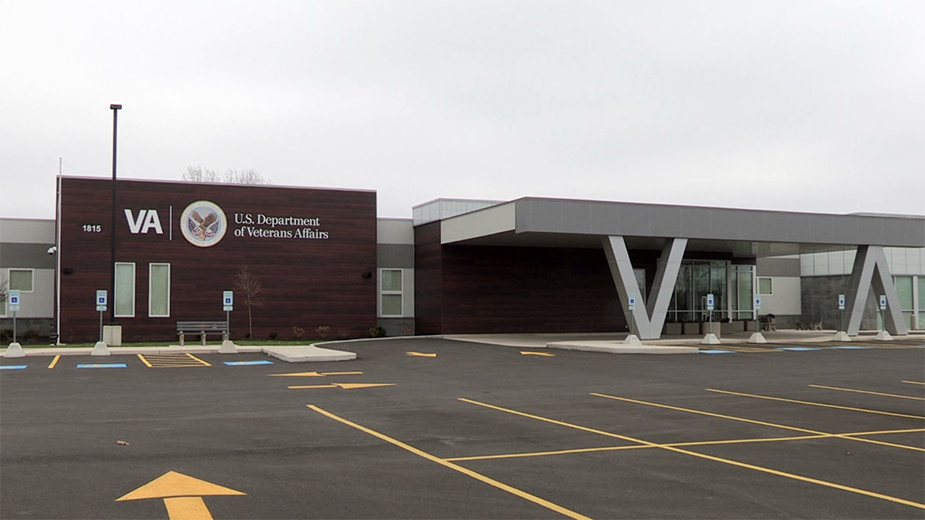YOUNGSTOWN, Ohio – When it opened in January, the new Carl Nunziato Veterans Affairs Clinic on Belmont Avenue became not just the newest building along Youngstown’s North Side corridor, but also a custom-built medical center dedicated to providing “whole-person” health care for veterans.
With an additional 10,000 square feet – making it 40% larger than the previous site – the Nunziato Clinic is better able to provide the patient-centered care that the VA prefers, officials say.
Rather than sending veterans from room to room to see different specialists, a patient is taken to one exam room with medical staff coming and going as needed.
“All the care is brought to the patient,” says Jose Salcedo, the VA’s associate chief of community outpatient care for northeastern Ohio. “The benefit is that you have the same team and the same doctor every time you make contact with the VA. You don’t have to call around from department to department. Being patient-centric in that way puts patients in charge of their own care, surrounded by a team to support them.”
Such a system also ensures continuity of care, says Carl Schneider, director of the clinic. As a civilian, Schneider has seen firsthand the differences in how the veterans’ health-care system operates compared to the private sector. VA medical staff follow up with patients and check in with them regularly about the state of their health, both mentally and physically, he says.

“Even if they don’t come in for a year, we’re reaching out to them and keeping them engaged,” he says. “No one’s calling me if I don’t make it to my doctor for a year. We want to ensure that our veterans are doing well and, if they aren’t, we want to get them in here and see to it that they’re taken care of.”
The Nunziato Clinic is expected to see more than 10,000 patients per year. The additional space will allow the clinic to provide more specialty care, Schneider says, although the expansion has been slow so far because of the pandemic. Atop the list of areas that will be addressed are cardiology, pulmonology and gastroenterology.
“We’re finding it’s difficult to ramp them up at an outpatient clinic like Youngstown. The goal is to have a wide number of specialty care serv-ices available once all the dust settles here,” Schneider says. “It’s also a difficult time to recruit, which adds to the challenge.”
The patient-centered model incorporates care beyond just physical health. Mental well-being is an important factor at the new clinic, with meditation and yoga finding a place alongside medical treatments.
“One important thing to VA health care is the whole-health initiative, which views the patient as a whole person rather than just treating an individual disease,” Salcedo says. “It’s a great program that centers care around veterans and what they need.”
Also available is music and art therapy, part of the National Endowment for the Arts’ Military Healing Arts Network. The clinical aspect of the program, led locally by Kelsi Bobbitt on the arts side and Christian Mazza for music therapy, promotes physical health – such as fine motor skills, concentration and cognition – as well as mental health by means of emotion management and communication skills.
Over the past year, the clinic’s intensive outpatient treatment for addiction and recovery shifted to new methods of delivering care, adding telehealth and phone calls to its repertoire. Though most in-person appointments have resumed – Schneider says about 70% of visits are now face-to-face – the offerings will remain available.
“We’re still adapting to the pandemic and still have those different modalities available. We’re slowly bringing back face-to-face visits. But it really depends on the provider and what they feel is best for the veteran,” Schneider says. “If they’re able to meet virtually, they do. If they want to meet in-person, they can.”
Medically, both Salcedo and Schneider say, there isn’t much separating the needs of veterans from those of civilians. The difference in what the VA health-care system does lies in its delivery of that care.
“It’s the same wide range of care,” Salcedo says. “What we focus on is high-quality, comprehensive care for our veterans. When they present to the clinic, we’re making sure they’re taken care of, whatever it may be for.”
The clinic is named for Carl Nunziato, a Vietnam War veteran who lost both legs in combat. After returning to Youngstown, he got his law degree and has spent decades advocating on behalf of veterans and people with disabilities. He led the charge to get Youngstown its first VA clinic, a converted bowling alley just north of the new site, in 1991.
“This is the greatest honor there is, but I have one request: I want it to be a symbol. A symbol of the Vietnam veterans who came back. We changed society. We made the country livable and respectable for our veterans,” Nunziato said in December after the naming of the new clinic was made official. “That was our mission. We never gave up and we won’t give up. We’ve taken the hill.”
A formal dedication ceremony is planned for this summer, Salcedo says. Nunziato visited the site for the first time in mid-May.
“Mr. Nunziato has visited and was overwhelmed by what this facility has developed into. He was excited for the area’s veterans,” Schneider says. “He’s very focused on disabled and veterans’ care. He’s a huge advocate and was instrumental in getting the original clinic up and running. When the president signed the bill [naming the clinic for him], we all knew it was well-deserved.”
Pictured: The Carl Nunziato Veterans Affairs Clinic, at 1815 Belmont Ave. in Youngstown, encloses 35,300 square feet.
